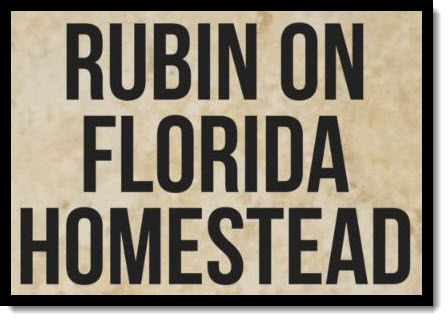Foreword
“Homestead law in the United States has evolved over time and it is strictly an American innovation. In Florida, moreover, our case law surrounding the homestead provision has its own contours and legal principles. As a result, it is not susceptible to comparisons with similar provisions in other jurisdictions.”
Snyder v. Davis, 699 So. 2d 999, 1002 (Fla. 1997)
FOREWORD
Florida homestead law is the bane of Florida lawyers. From law school through the bar exam and into practice in the real world, most lawyers have struggled with its concepts at one time or another. Too often, errors are committed.
Several aspects of Florida law contribute to its complexity and difficulty. First, it is a mixture of constitutional, statutory and common law. Second, it is three separate areas of law – protections against forced sale, limits on transfers and devises, and ad valorem property taxes. Sometimes definitions and law in these areas overlap and intersect – sometimes they do not. Further, Florida’s homestead law is unique among U.S. and foreign jurisdictions. Lastly, many homestead concepts are difficult to apply, in and of themselves.
My very rough estimate is that there are in excess of 4 million properties in Florida that can be characterized as homestead property. Each homestead property is impacted by restrictions on transfer and devise, Florida ad valorem taxes and special limitations on those taxes, and the protections afforded homestead property against creditors. Thus, homestead law substantially affects a multitude of owners, their families, and their personal interests.
It is the goal of this treatise to address the law and issues relating to these three principal areas in depth, while still endeavoring to educate and avoiding unnecessary complexity. I hope this treatise fills a need and becomes an indispensable resource for Florida attorneys and other persons and professionals that need to be conversant with Florida homestead law.
CHARLES (CHUCK) RUBIN
May, 2018
